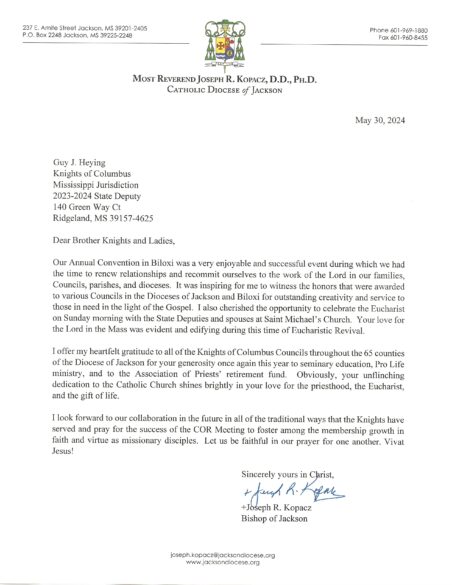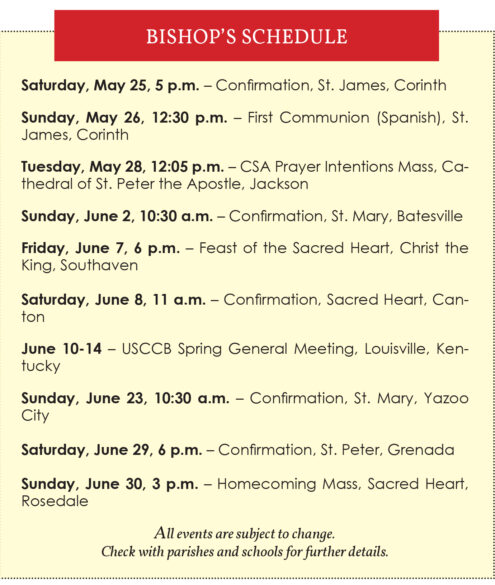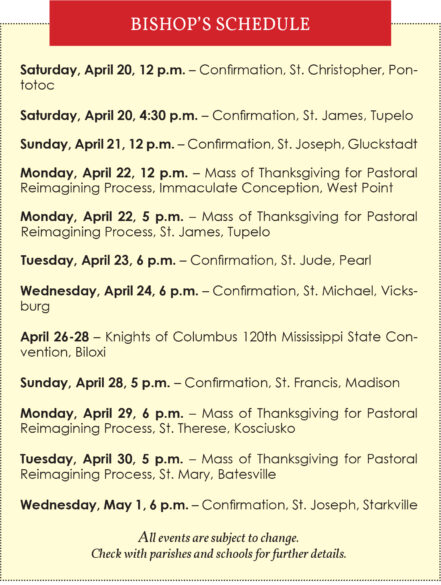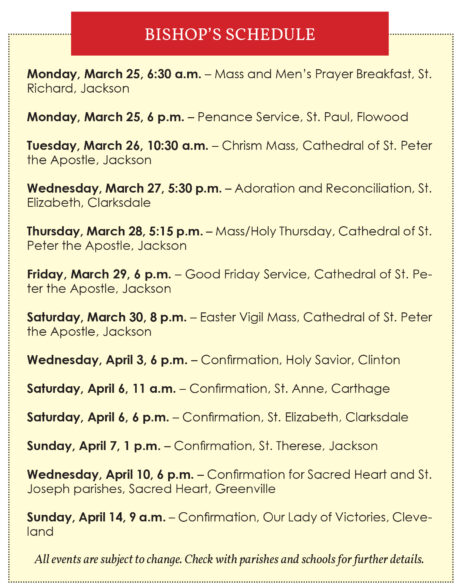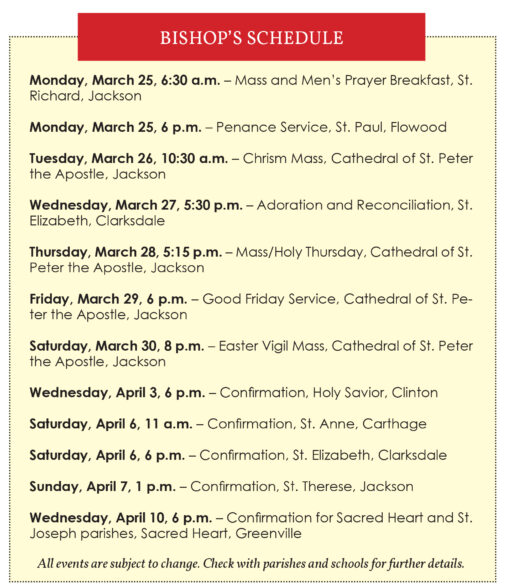By Bishop Joseph R. Kopacz, D.D.
It was 125 years ago that Pope Leo XIII consecrated the world to the Sacred Heart of Jesus at the dawn of the 20th century. Twenty-five years ago, at the dawn of the new millennium Pope John Paul II reconsecrated the world to the Sacred Heart imploring the church especially, but all people of faith and good will to see in the Sacred Heart of Jesus the essence of God who is love. Each year in our liturgical calendar the feast of the Sacred Heart is commemorated on the Friday after Corpus Christi, the Solemnity of the Body and Blood of the Lord. How fitting is this sacred combination. From the pierced side (heart) of the crucified Savior flowed blood and water, the gift of eternal love and the wellspring of the sacramental life of the church, baptism and the Eucharist.

The spirituality of the Sacred Heart steadily took root and flowered from the time of the visions of St. Margaret Mary Alacoque, VHM in the 1670s to the major movements of the 19th century. St. Cardinal John Henry Newman, a phenomenal theologian and apologist who embraced the Catholic faith at mid-life chose for his episcopal motto in 1879 “Cor ad Cor loquitur” heart speaks unto heart. At the center of his intellectual prowess and pastoral dedication was the beating Sacred Heart of the Lord solidly anchored in the scriptures. “I ask that the eyes of your heart may be enlightened so that you may know what the hope is of the glory of his inheritance in the saints.” (Ephesians 1:18)
A year earlier across the channel in France in 1878 Father Leo John Dehon received permission from the Vatican to establish the religious community of the Priests of the Sacred Heart in the same year on Feb. 20 that Pope Leo XIII began his long tenure that would last until 1903.
Do we see a pattern here? The Holy Spirit was hard at work to inspire believers from the center of the church to all points on the compass to embrace the Sacred Heart of Jesus.
Love for Jesus Christ in his Sacred Heart is Eucharistic through and through as we hear the words of the Lord echoing through time at every Mass: “this is my body, this is my blood poured out.” (Mark 14: 22-24)
To be washed clean in the Blood of the Lamb (Revelations 7:14) is the fountain of Eucharistic Revival. Yet, love for the Sacred Heart and the Lord’s sacrifice cannot be contained within our churches, as sacred as they are. The charism of the Priests of the Sacred Heart is to transform the world we live in through acts of compassion, justice and mercy. This labor of love on behalf of God’s Kingdom has been alive and well in the north of our diocese for over 80 years through the dedication of the Sacred Heart Fathers (SCJs).
Likewise, Pope Leo XIII in his love for the Sacred Heart of Jesus yearned for greater justice for all workers during the Industrial Revolution when so many, including children, were being crushed beneath the wheel of industry. His landmark encyclical Rerum Novarum or “The Rights and Duties of Capital and Labor” is valued as the foundational document for the Social Teachings of the church in every generation since.
The Sacred Heart of Jesus is well integrated into the liturgical and personal prayer of the church. We celebrate and cherish this symbol of God’s eternal love every First Friday of the month knowing that it is a love poured out every day of the year to enflame our worship and to inspire our actions on behalf of greater justice and peace in our world.
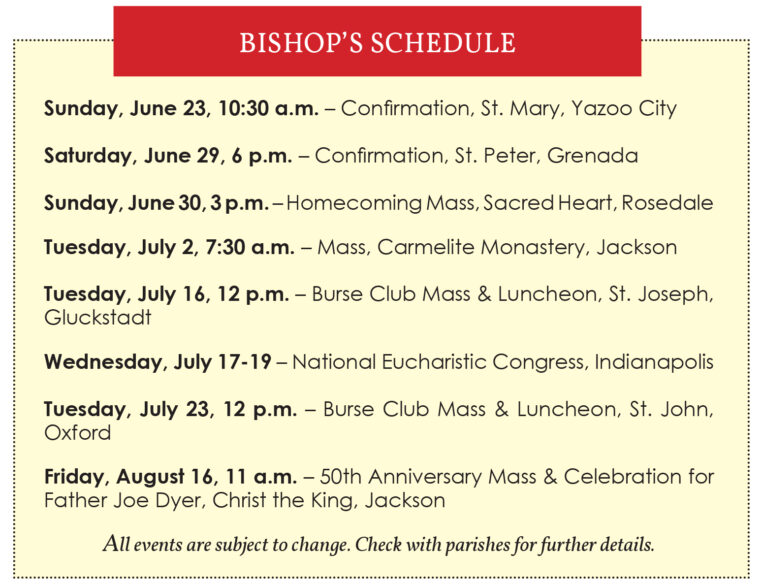
Jubilee Prayer: “I now consecrate my heart to your Sacred Heart, Jesus. You are the Son of God whom I love with all my heart. I offer you my body, soul, my mind, and my heart. Receive me, make me holy, make my heart like your heart, and guide me in the way of perfect love today and every day of my life. Amen.”

